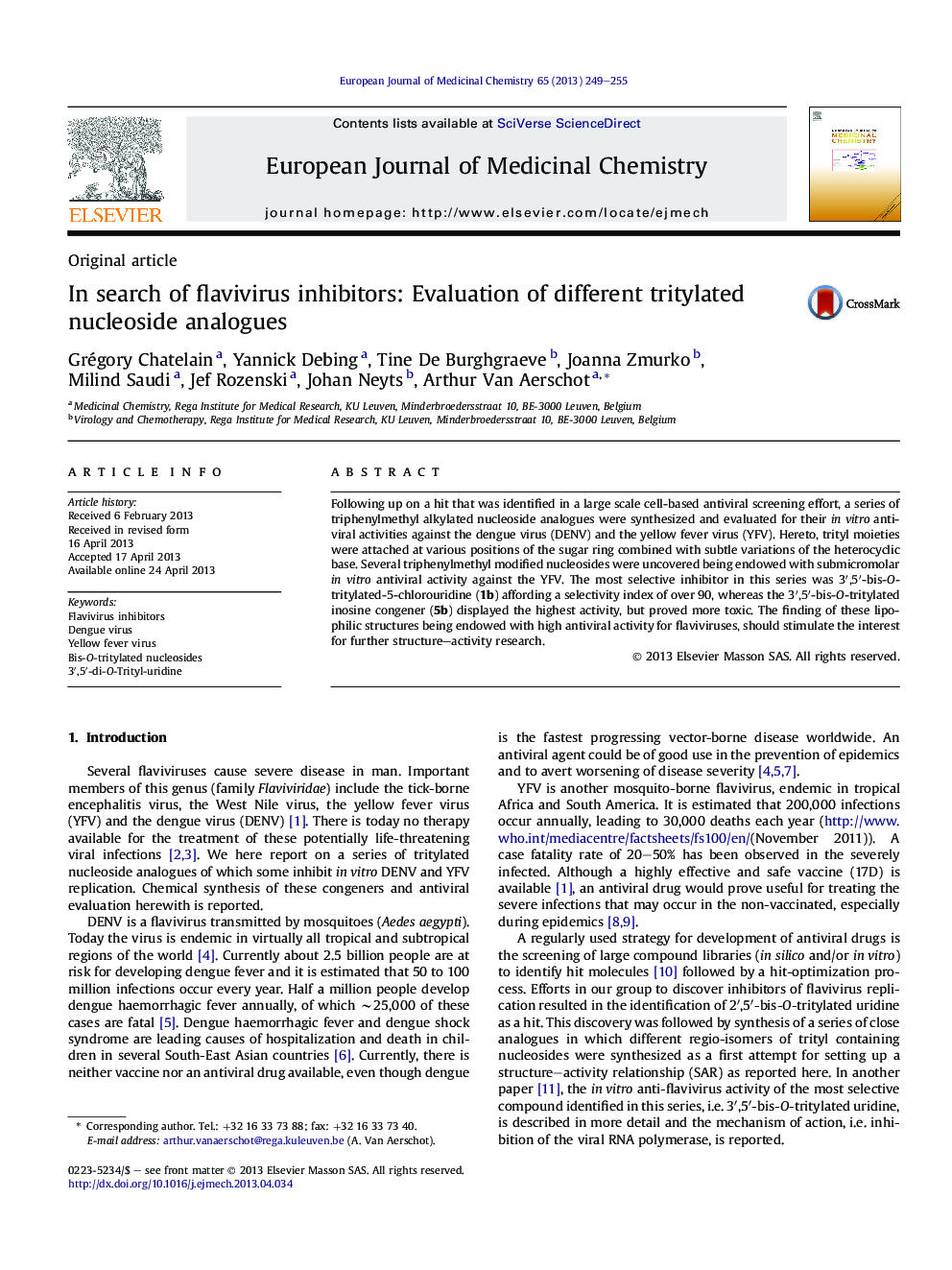| Article ID | Journal | Published Year | Pages | File Type |
|---|---|---|---|---|
| 1399091 | European Journal of Medicinal Chemistry | 2013 | 7 Pages |
•At present there is no therapy for the treatment of Flavivirus infections.•A series of tritylated nucleoside analogues was evaluated for antiviral activity.•Several bis-O-tritylated nucleosides showed submicromolar YFV inhibiting properties.•The most potent and selective inhibitor proved to be the 3′,5′-bis-O-tritylated 5-chlorouridine.•The compound afforded a selectivity index of over 90 400 for inhibition of YFV.
Following up on a hit that was identified in a large scale cell-based antiviral screening effort, a series of triphenylmethyl alkylated nucleoside analogues were synthesized and evaluated for their in vitro antiviral activities against the dengue virus (DENV) and the yellow fever virus (YFV). Hereto, trityl moieties were attached at various positions of the sugar ring combined with subtle variations of the heterocyclic base. Several triphenylmethyl modified nucleosides were uncovered being endowed with submicromolar in vitro antiviral activity against the YFV. The most selective inhibitor in this series was 3′,5′-bis-O-tritylated-5-chlorouridine (1b) affording a selectivity index of over 90, whereas the 3′,5′-bis-O-tritylated inosine congener (5b) displayed the highest activity, but proved more toxic. The finding of these lipophilic structures being endowed with high antiviral activity for flaviviruses, should stimulate the interest for further structure–activity research.
Graphical abstractFigure optionsDownload full-size imageDownload as PowerPoint slide
